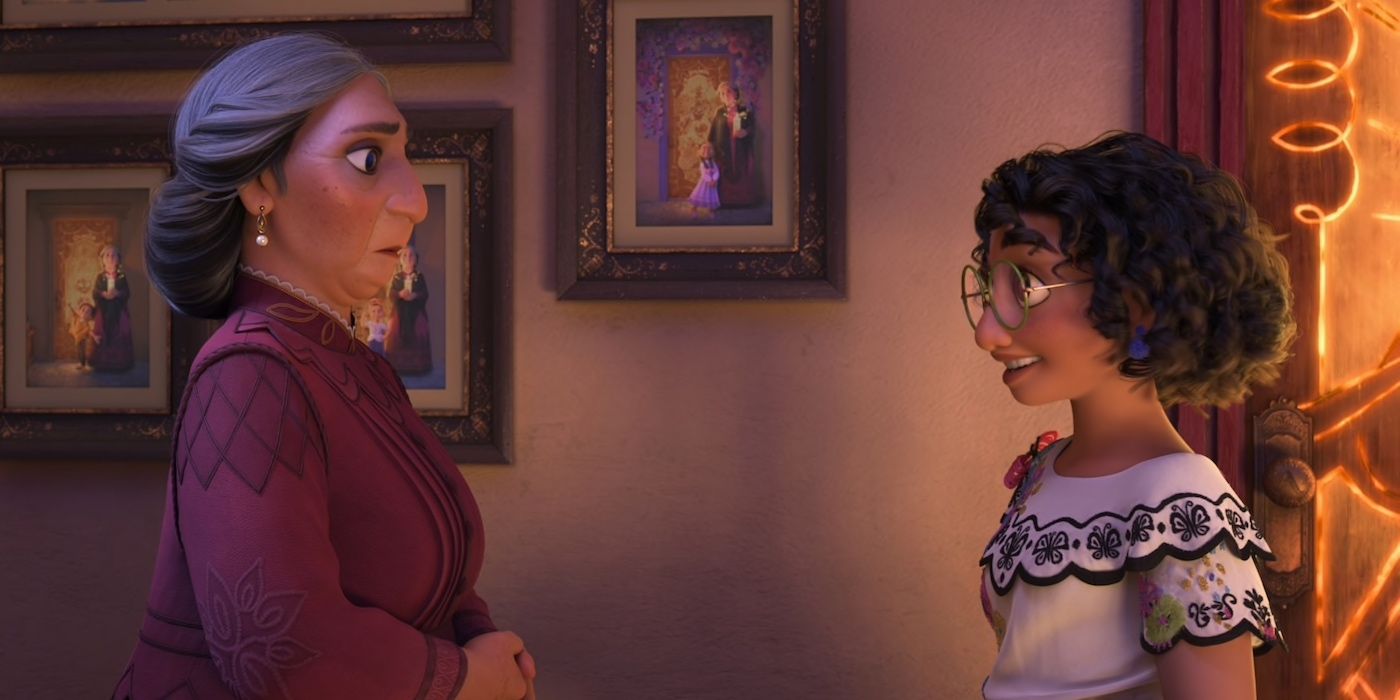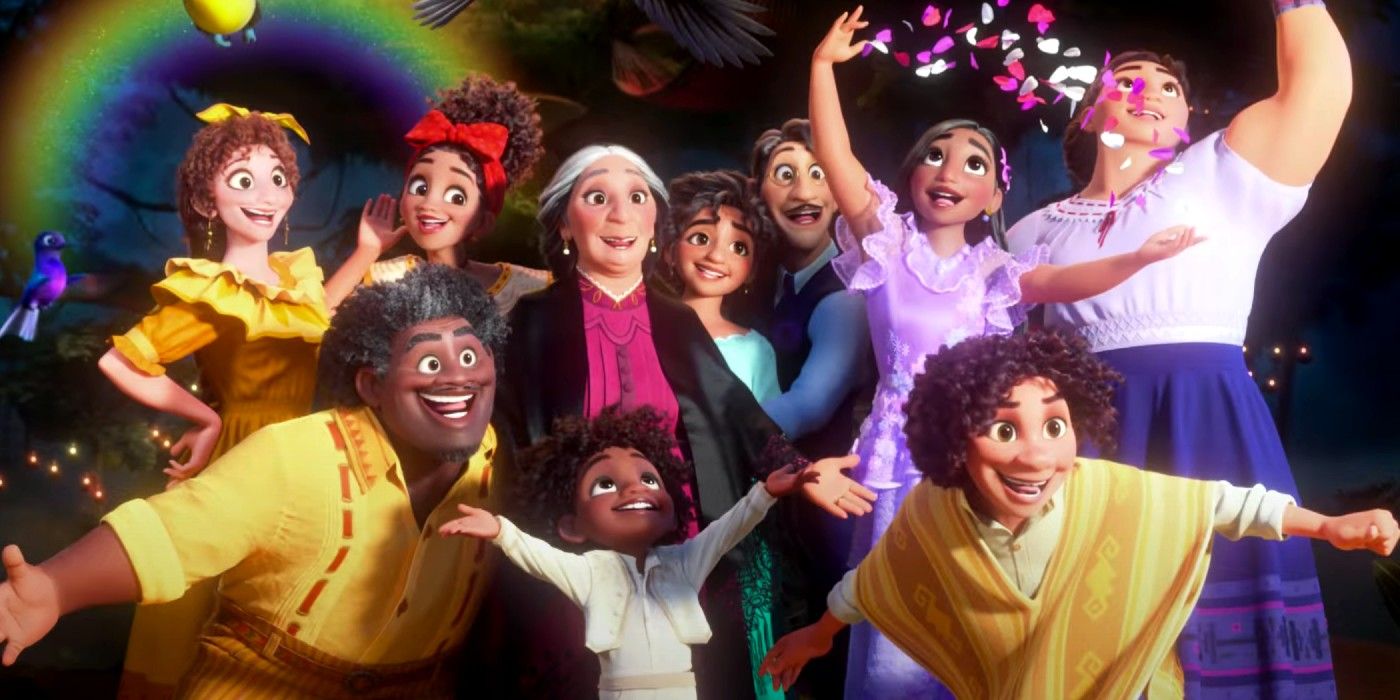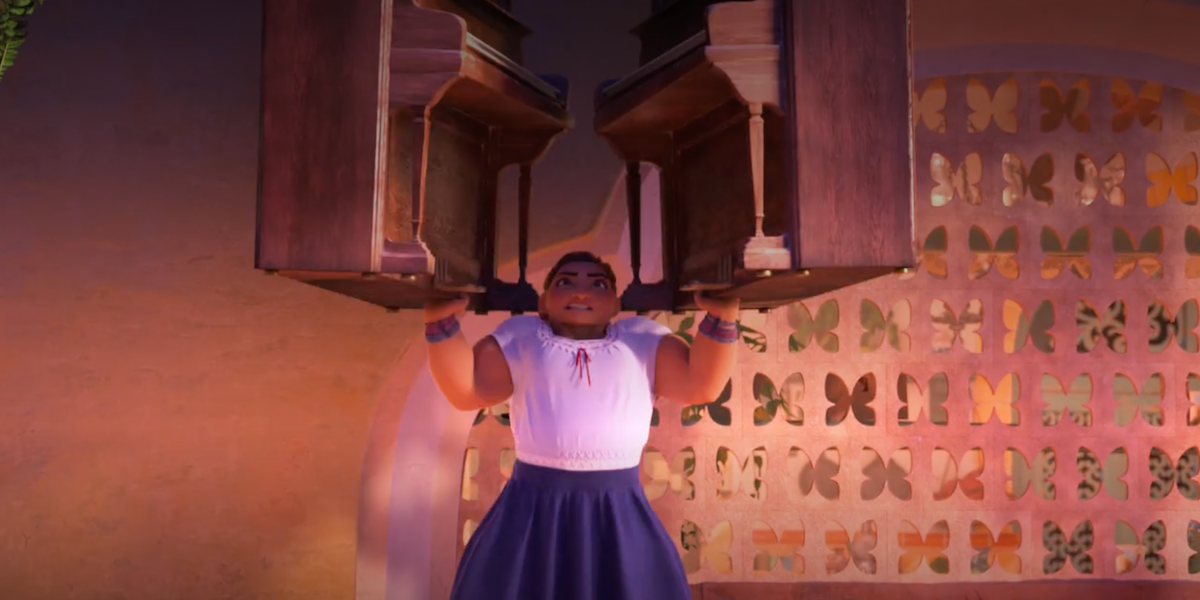WARNING: The following contains spoilers for Disney's Encanto, in theaters now.
From 1937's Snow White until recently, animated Disney movies were mostly about princesses falling in love with their princes and escaping from or fighting off villains, who inevitably fell from some height to their PG-rated dooms. In the last decade, the studio has gone to great lengths to modernize the types of stories it tells. Its young female protagonists now want more than marriage, its antagonists aren't so obviously coded as queer or ethnic. But one trope has proven to be too hard a habit for Disney to kick: the dead parent. Encanto, the 60th animated Disney feature, avoids those first two traps entirely and it (technically) steers clear of the third, all of which makes for a surprisingly relatable movie about a family that has magical powers.
In hits like Frozen and flops like Artemis Fowl, Disney leans on the deaths of parents to create drama, sometimes even adding the loss of a mother when it wasn't a plot point in the source material. This literary device certainly isn't unique to Disney movies. Children's authors have been killing off parents for as long as there have been stories centered on kids, and for good reason. The death of a parent is about the worst problem most kids can imagine, and in the absence of a beloved adult's guidance, the child at the center of the story must face obstacles on their own. Removing parental figures is a narrative necessity in some cases. In Star Wars and Harry Potter, Luke and Harry would have nothing to discover if they'd been raised by loving moms and dads who filled them in about the Force or magic. But more often than not, this tragic bit of backstory is deployed somewhat lazily, to copy and paste a kind of emotional resonance or stakes that should, instead, be earned by better writing.
At this point, dead parents are so common in kids' movies, Bambi's mom would barely register if the classic came out today. In contrast, with Encanto, Disney has given our young heroine Mirabel not just a mother and father but an entire extended family. The Madrigals are Mirabel's support system and the source of her problems. There's not some wicked witch or evil spell to contend with; the drama here is the messy family dynamic (though there's a heaping helping of magical realism).
In Encanto, Mirabel is the only one of about a dozen immediate family members who has not been enchanted with a particular supernatural gift. It's clear this was a disappointment to her grandmother, the family's exacting matriarch who doles out the magic with the eternal flame of a miracle candle. It's also clear that being merely human in a family of superhumans is seriously affecting Mirabel's self-esteem. When it looks like the magic is beginning to fade, Mirabel goes looking for mystical answers in hopes that, despite her lack of a superpower, she'll be able to save the day. Instead, she finds out her sisters -- one has super strength, the other impossible beauty -- are buckling under the weight of the expectations their grandmother and village have placed upon them.
Kids' media so often moralizes about how anything is possible if we just believe in ourselves. Those stories may have been useful in the past and still have their merits, but today's kids are -- like Mirabel's sisters -- buckling under the weight of expectations about grades, sports and other extracurricular activities, and their parents' visions for the future. Encanto isn't a movie about overcoming adversity (like being orphaned), defying the odds and becoming your best self. It's about unconditional familial love, which is, sadly, less trodden territory in kid lit. The film even ends with a song about how it shouldn't be a child's talents that make them worthy of affection. Their existence is enough. This is a revolutionary concept to kids who worry that they're not good enough for their parents, let alone the world.
Encanto illustrates its characters' insecurities and interpersonal conflicts in ways that might actually help its young audience resolve some of those issues on their own. Not many of us fend off pirates or snow monsters, but most of us have had spats with siblings or rifts with the older generation and have felt un-special. The film could only have that effect by including parents, sisters, cousins and so on. Though Mirabel doesn't lose her mom or dad, her grandfather's murder long before she's born is what sets the story in motion and introduces magic into the Madrigal's world. Fear of more loss is what motivates her grandmother's controlling nature and high standards. There's nothing egregious about this explanation. Past trauma is the root of a great deal of family dysfunction. But Encanto didn't really need to flesh out a reason for its magic. It's a refreshing parable about not putting too much pressure on ourselves, meant for parents and grandparents as much as for its school-aged audience.
See the Madrigals learn to get along in Encanto, in theaters now.



